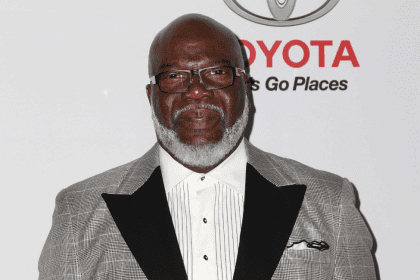A storm of controversy has engulfed Florida A&M University following the appointment of Marva Johnson as its 13th president. The selection has triggered widespread opposition from students, faculty, and alumni concerned about her qualifications and political ties. Johnson, whose background lies in telecommunications rather than academia, secured the position despite significant pushback from the university community.
The divided board decision
The FAMU Board of Trustees voted 8-4 to appoint Johnson on May 16, revealing deep divisions over leadership priorities for the historically Black university. The decision came after contentious discussions about the qualifications necessary to lead one of America’s premier HBCUs in an increasingly complex political environment.
Four board members, including Board Chair Kristin Harper, opposed the appointment, citing concerns about Johnson’s preparation for academic leadership. Harper expressed disappointment about what she described as Johnson’s insufficient intellectual depth and apparent disconnect from FAMU’s cultural foundations. This assessment reflected broader concerns that Johnson lacks the scholarly background and institutional understanding typically expected of university presidents.
The split vote highlighted contrasting visions for FAMU’s future direction. Supporters emphasized Johnson’s corporate experience and political connections as potential assets for navigating funding challenges, while opponents questioned whether these qualities should supersede traditional academic leadership credentials.
Background concerns and political connections
Johnson arrives at FAMU with a resume markedly different from traditional university presidents. Her primary professional experience comes from the telecommunications industry rather than higher education administration or academic scholarship. She previously served as chair of Florida’s Board of Education, providing her with exposure to educational policy but not direct experience managing university operations.
Her close association with Florida Governor Ron DeSantis has become a focal point of controversy. The governor has implemented sweeping policies targeting diversity, equity, and inclusion programs across Florida’s educational institutions. These initiatives have particularly alarmed HBCU communities, which were founded specifically to address historical exclusion of Black Americans from educational opportunities.
Critics express concern that Johnson’s appointment represents an extension of political influence into academic leadership, potentially threatening the university’s foundational mission. They point to recent legislative actions in Florida that have restricted discussions of systemic racism and curtailed DEI programs as evidence of potential conflicts with FAMU’s historical purpose.
Community mobilization against the appointment
Opposition to Johnson’s selection has extended well beyond campus boundaries. A petition on Change.org opposing her appointment quickly gathered more than 16,000 signatures, demonstrating widespread concern throughout the extended FAMU community. This remarkable mobilization highlights the passionate investment many stakeholders feel toward preserving the university’s mission and values.
Prominent alumni have publicly voiced opposition to the selection. During board deliberations, successful film producer and FAMU graduate Will Packer warned about the dangers of installing leadership without community support. He emphasized that regardless of external political connections, a university president requires the confidence of students, faculty and alumni to succeed in advancing the institution’s mission.
The Faculty Senate has expressed similar concerns, though its president Jamal Brown acknowledged potential benefits of Johnson’s regulatory expertise. This measured stance reflects the complex calculations facing FAMU stakeholders as they navigate both principled opposition and pragmatic considerations about university funding and political realities.
Broader context of HBCU challenges
The controversy at FAMU unfolds against a backdrop of systemic challenges facing historically Black colleges and universities nationwide. A 2023 analysis by the U.S. Department of Education revealed that public HBCUs have been underfunded by approximately $12 billion over three decades compared to predominantly white institutions. This persistent resource gap affects everything from faculty recruitment to infrastructure development.
FAMU specifically has experienced significant funding disparities despite its crucial role in educating Black professionals across numerous fields. The university produces a substantial percentage of Black graduates in disciplines ranging from pharmacy to agriculture, making its educational mission vital to addressing professional diversity nationwide.
The appointment controversy raises questions about whether political appointments to university leadership positions might undermine institutional autonomy. Historically, HBCUs have maintained distinct educational philosophies centered on both academic excellence and cultural affirmation. Critics fear that politically motivated leadership selections could compromise these distinctive educational approaches.
Competing visions for HBCU leadership
Underlying the specific controversy around Johnson’s appointment lies a fundamental debate about what qualities matter most in HBCU leadership today. Traditionally, these institutions have valued leaders with strong academic credentials, demonstrated commitment to educational access, and deep understanding of the unique historical missions of Black colleges and universities.
Johnson’s supporters argue that the contemporary political and financial landscape demands different leadership skills. They suggest her corporate background and political connections might help FAMU secure resources and navigate regulatory challenges. This perspective prioritizes practical concerns about institutional survival in a challenging funding environment.
Opponents counter that compromising on core qualifications and values threatens the very identity that makes HBCUs distinctive and valuable in American higher education. They argue that without leaders deeply committed to these institutions’ historical missions, HBCUs risk becoming indistinguishable from predominantly white institutions while losing their special role in fostering Black intellectual and professional development.
Presidential success factors
As Johnson prepares to assume leadership, observers identify several factors likely to determine her success or failure. Community support represents perhaps the most critical challenge, as university presidents typically depend on faculty, student, and alumni cooperation to implement initiatives and advocate for institutional priorities.
Financial management will present both challenges and opportunities. FAMU, like many public universities, faces budget constraints requiring careful resource allocation. Johnson’s business background could prove advantageous in this area, though critics question whether corporate approaches translate effectively to academic environments.
Perhaps most importantly, Johnson must establish her commitment to FAMU’s historical mission of providing educational opportunities for Black students and advancing racial equity in higher education. Skeptics will watch closely for evidence that she intends to preserve rather than transform the university’s distinctive identity and purpose.
National implications of local controversy
The situation at FAMU reflects broader national debates about higher education governance and institutional autonomy. As state legislatures increasingly assert control over public universities through funding decisions and policy directives, questions arise about the independence of academic institutions and their ability to pursue distinctive educational missions.
For HBCUs specifically, political appointments to leadership positions raise concerns about institutional capture by forces potentially hostile to their historical purposes. These institutions were founded precisely because mainstream educational systems excluded or marginalized Black students and scholars. Their continued existence depends on maintaining distinct identities and purposes.
As Johnson begins her presidency, her actions will be scrutinized not only by the FAMU community but also by observers nationwide concerned about the future of historically Black institutions. The controversy surrounding her appointment highlights the delicate balance between political realities and educational values that HBCUs must navigate in an increasingly polarized environment.












